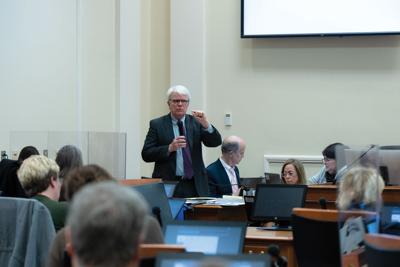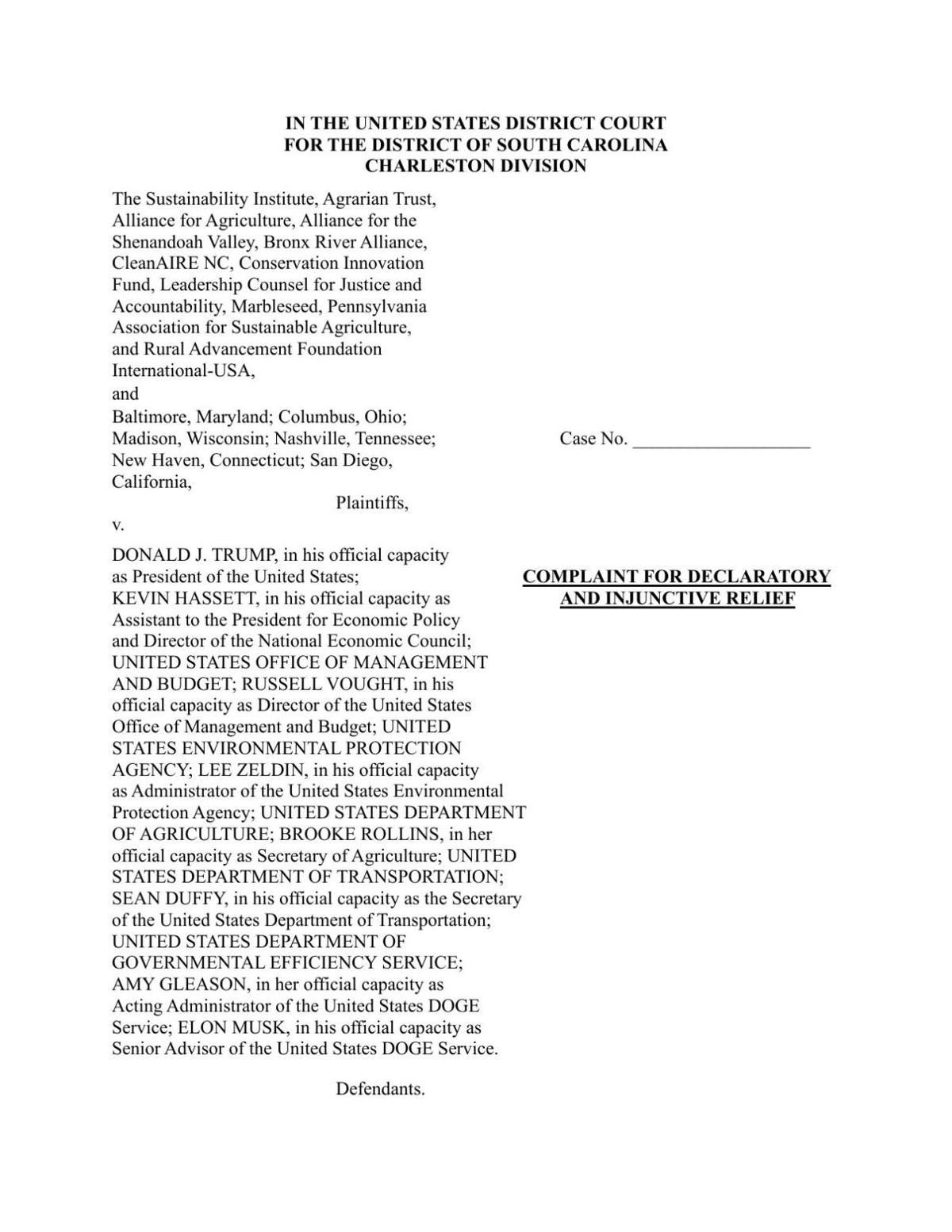Nashville attorneys sued President Donald Trump, Elon Musk and the heads of several federal agencies last week to recover $14 million for two grants awarded, but never paid, by the federal government. Nashville joins five major cities and 11 nonprofit groups as plaintiffs in the suit.
City attorneys tell the Scene that unpaid federal funding may expand well beyond these two grants. Metro lawyers and city department heads are in the midst of an effort to identify grants potentially stalled or eliminated by the Trump administration, some of which have already been counted as income in the budgeting process.
Nashville is suing for a $4.7 million “Electrify Music City” grant, awarded in August, to expand public vehicle charging stations, as well as a $9.3 million “East Nashville Spokes” grant awarded in January to build bike lanes and pedestrian improvements near the East Bank. Both came from infrastructure programs introduced under the U.S. Department of Transportation.
Three-judge panel hears arguments over state law that would slash the size of Metro Council
“We were awarded the grants, then the actual agreement has not been sent to us,” says Metro attorney Lora Barkenbus Fox. “I guess we’ve been ghosted. None of the terms of the grant are contingent on the president signing off on it. The funding was approved by Congress, and Metro Nashville was told we were awarded the grant. There’s no authority for slow-walking or stopping the award of that grant just because the executive wishes to.”
Fox and Metro legal director Wally Dietz say they are monitoring all of Metro’s grants closely and are in regular communication with city department heads. Nashville, like many municipalities, relies heavily on federal funding — especially for spending related to infrastructure.
Nashville has already undergone a procurement process, selected a vendor and signed a contract with a vendor for electric charging stations, leaving the city with significant financial liability, according to the suit. The city also “incorporated the awarded funds in its Transportation Improvement Program budget,” throwing an early wrench in Mayor Freddie O’Connell’s multibillion-dollar transit plan, which was approved by voters in November. After more than four months’ search, O’Connell has yet to hire an executive chief program officer to directly manage the city’s ambitious transit push. The mayor recently announced 11 initial transportation projects totaling $60 million.
Dietz suspects that Nashville’s grant money was wrapped up in an effort by Trump’s office to specifically target funding related to the environment that was approved under Biden’s Inflation Reduction Act.
Mayor eyes $60 million in roadway, planning and technology spending
“ The common themes we share as plaintiffs are environmental grants coming out of the Inflation Reduction Act,” Dietz tells the Scene. “We’re not seeing interruptions in all of our grants, but just the fact that these grants deal with walkability and bikeability means they fell under the rubric of an environmental award. It is very distressing, and every city across the country is facing this type of uncertainty.”
Joining Nashville in the suit are Baltimore; Madison, Wis.; San Diego; Columbus, Ohio; and New Haven, Conn. Together, they claim more than $80 million in awarded but unpaid federal grant funding. The full lawsuit details poor communication and confusing information — or lack thereof — from federal agencies after Trump took office on Jan. 20, 2025.
The suit also names former Nashville health care executive Amy Gleason, now the formal head of Trump’s Department of Government Efficiency, as a defendant, and refers to Musk as a “Senior Advisor to the President and the de facto head of DOGE.” The dates presented in the complaint line up with highly publicized efforts by Musk and DOGE to halt previously allocated federal funding.
Two federal judges recently ruled against the White House in similar cases, stating that such interference violates the constitutionally protected separation of powers between the executive and legislative branches of government.
Nashville’s suit was filed in federal court in South Carolina by attorneys for the Southern Environmental Law Center, a nonprofit advocacy group and the suit’s lead plaintiff.
“ When there are inconsistent rulings at the Court of Appeals level, that’s when the U.S. Supreme Court typically gets involved,” Fox tells the Scene. “ We’re not there yet. But these are super important issues for every entity across the country that receives grants. I would not be surprised to see an issue like this come before the U.S. Supreme Court.”








